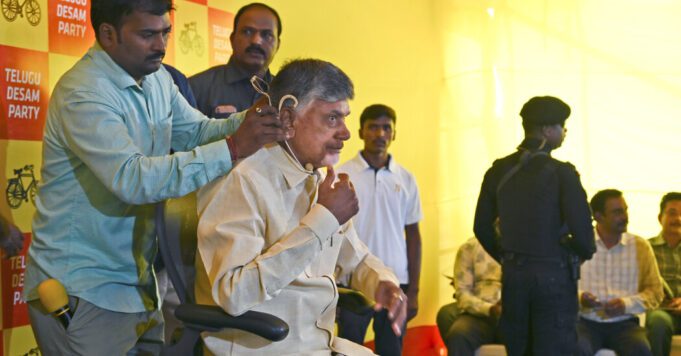Indian Prime Minister Narendra Modi easily won his term after winning the first two national elections, with his Bharatiya Janata Party winning a clear majority of seats.
The result of this vote was different. It was still a victory, but it left him dependent on a host of coalition partners — especially two other politicians from regional parties who could determine Modi’s ability to form a government.
Of the dozen or so parties that make up the BJP's ruling coalition, the National Democratic Alliance won only one or two seats in most of them. What Modi needs most is the two parties that support the BJP, both of which are openly secular and run counter to Modi's Hindu nationalist ideology.
On Wednesday, cameras followed the words, meetings and movements of Telugu Sena leader N. Chandrababu Naidu and Janata Dal leader Nitish Kumar. The two parties hold a combined 28 seats in parliament, which the prime minister needs to stay in power and advance his agenda.
Here’s some information about these accidental kingmakers and the parties they led.
Their party does not share Modi's Hindu-first agenda.
While some members of the BJP alliance this year agree with Modi’s hardline approach, both the Telugu Mahasabha and the BJP-UP are moderate secular parties with a diverse support base.
Speculation in India now centers on what terms the two men will demand for their support, and those are unlikely to be rooted in ideology. Both Naidu and Kumar are known to be pragmatic, deal-making politicians whose first priority is to get tangible concessions from their states, or perhaps cabinet posts.
They have a history of constantly changing alliances.
Kumar has been known in India for his willingness to switch sides over the past decade. He has switched from supporting the BJP-led coalition to its opponents five times. Most recently, in January, he returned to Modi's alliance just 18 months after leaving it and months before the general election. He said he changed political affiliations in the interest of his state of Bihar.
On Wednesday, local media reported that Kumar had flown to New Delhi along with a politician from a party allied with the opposition alliance.
Naidu, who also broke ties with Modi, broke with the BJP in 2018 and joined forces with the BJP's main rival, the Indian National Congress, ahead of the 2019 general election. He said his party entered into an alliance with the BJP due to “political pressure.”
They are long-term survivors of difficult political situations.
Both Naidu and Kumar have been in politics for decades and are considered potential candidates for the prime ministership.
Naidu is a technocrat in the TDP party in the southern Indian state of Andhra Pradesh who actively courted information technology companies to invest in the region. His policies brought high-paying jobs to IT professionals and transformed the city of Hyderabad.
Kumar, a nine-time chief minister of Bihar, India's poorest state, who comes from a homegrown socialist background, has pushed for more funding for lower-caste Hindus and his alliance with the BJP has boosted the party's support in the state.









